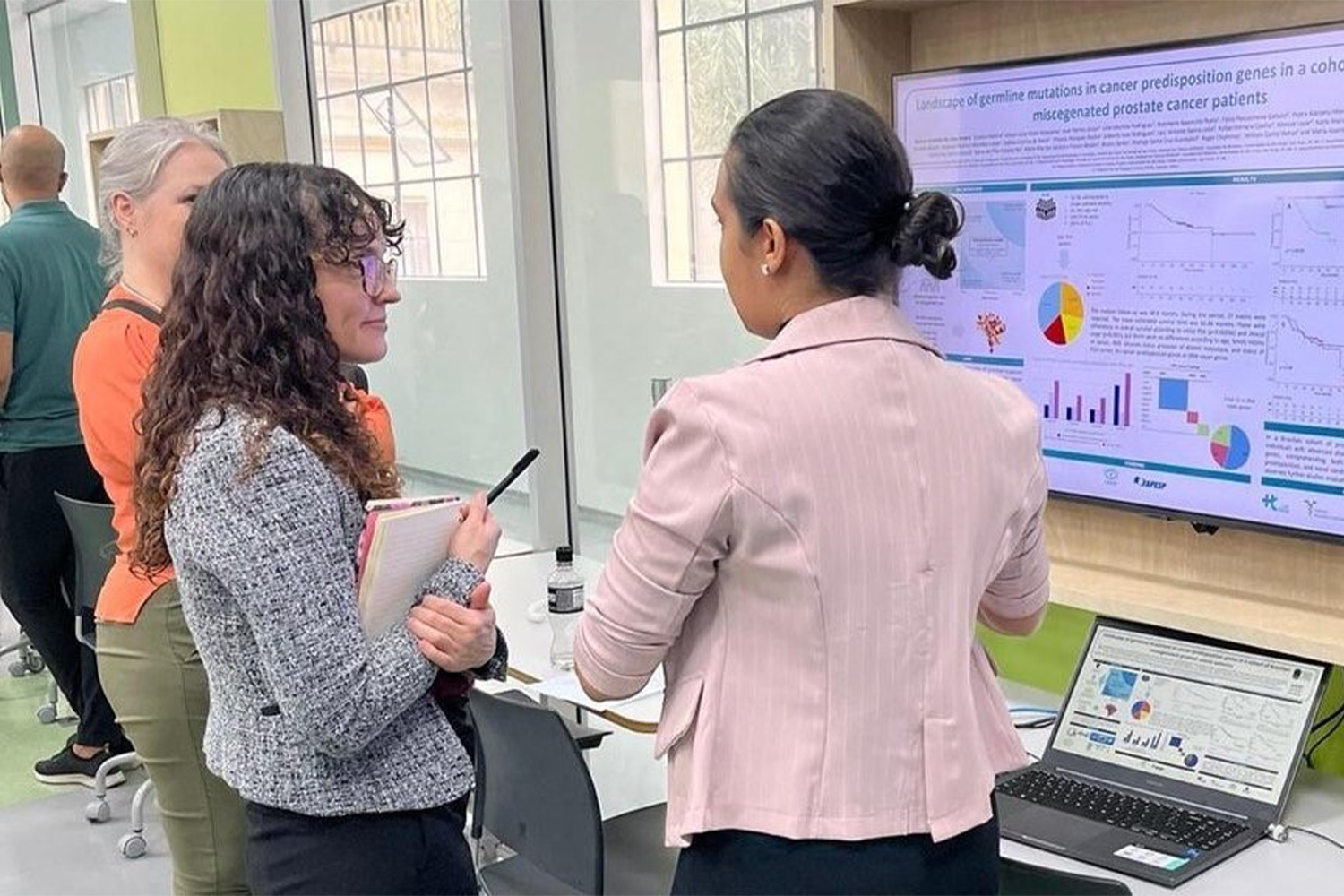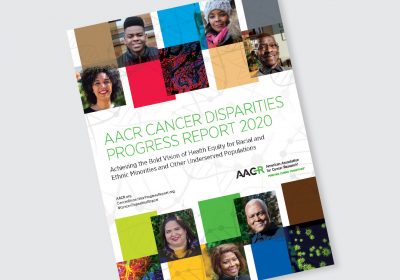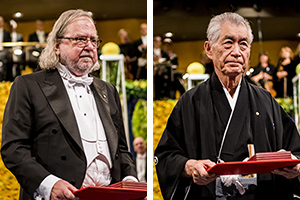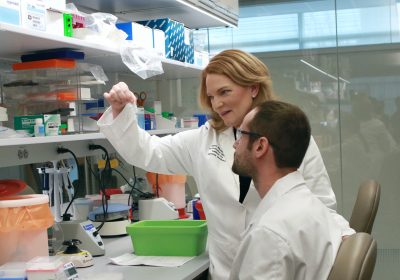
A Global Reach
The AACR empowers the next generation of cancer researchers and practitioners worldwide.
 The American Association for Cancer Research® (AACR) is a global organization with a mandate to support cancer research and related bioscience-focused communities around the world. AACR on Campus (AACRoC) helps meet that need by offering a targeted overseas outreach program for early-career professionals and early-stage investigators in low-resource settings. The goal is to build cancer research capacities through education and training.
The American Association for Cancer Research® (AACR) is a global organization with a mandate to support cancer research and related bioscience-focused communities around the world. AACR on Campus (AACRoC) helps meet that need by offering a targeted overseas outreach program for early-career professionals and early-stage investigators in low-resource settings. The goal is to build cancer research capacities through education and training.
The AACR collaborates with members and partners living in the regions served to address the interests, needs, and demographics of the local cancer research and clinical practice communities at institutions hosting the program. Among the topics covered are cancer research trends and innovations, publishing, science communication, and career development.
The first AACRoC program was held virtually in partnership with the Latin American and Caribbean Society of Medical Oncology (SLACOM) in 2021. The goal of the 2021 AACRoC program was to provide to academic and cancer research institutions in Latin America locally relevant perspectives on implementation science—its origins, aims, trends, innovations, and applications to cancer detection, prevention, and care in the region.
A second AACRoC program took place at the Tata Memorial Centre Advanced Centre for Treatment, Research and Education in Cancer (ACTREC), located in Mumbai, India. The program was held in partnership with ACTREC. AACRoC India was a two-day pilot program to test the AACRoC concept in person.
The most recent program, AACRoC Brazil, in partnership with the Institute of Cancer of São Paulo (ICESP) at the University of São Paulo (USP), took place over a week with stops at both USP and its satellite campus in Ribeirão Preto. The Brazil events drew more than 200 registrants total and garnered extremely positive feedback from the local cancer research and clinical practice communities.
“The AACR team’s visit to the University of São Paulo provided an excellent opportunity for our graduate students, postdoctoral fellows, and researchers to engage with leaders in the field of precision oncology,” said Roger Chammas, MD, director of the Center for Translational Research at the Institute of Cancer of São Paulo at the University of São Paulo. “The program covered a range of topics, from diagnostic genomics to innovative treatments like immunotherapy and antibody-drug conjugates.
“The educational session format fostered vibrant discussions about the latest trends in cancer research while facilitating meaningful interactions with AACR scientists and executives,” said Dr. Chammas. “The collegial atmosphere led to insightful and sometimes emotional conversations that reinforced the core mission of our research efforts. Together, we explored the future of oncology and highlighted the qualities needed to drive these discoveries and translate them into benefits for society.”
Key Components of AACR on Campus
Educational Sessions: AACR on Campus hosts a mixture of lectures, meet-the-experts informational sessions, and panel discussions. These events cover a wide range of topics, from the latest advancements in cancer research to career development and grant writing. Renowned experts in the field share their insights and experiences, offering valuable guidance to attendees.
Networking Opportunities: One of the most significant benefits of AACR on Campus is the opportunity for young researchers to connect with established professionals in the field. Networking sessions, poster presentations, and informal meet-and-greet events allow participants to build relationships, seek mentorship, and explore potential collaborations.
Career Development Resources: AACR on Campus provides resources to help young scientists navigate their career paths. This includes guidance on writing effective research proposals, tips for publishing in high-impact journals, and advice on securing funding. These resources are invaluable for those looking to establish themselves in the competitive field of cancer research.
Hands-On Training: In addition to theoretical knowledge, AACR on Campus offers hands-on training sessions. These practical sessions cover techniques and methodologies essential for cancer research, such as molecular biology, bioinformatics, and clinical trial design. Participants gain practical skills that can be directly applied to their research projects.
Impact on the Research Community
By bringing together students, early-career researchers, and seasoned professionals, AACR on Campus fosters a collaborative environment that encourages the exchange of ideas and the development of innovative research projects that help to improve cancer detection, treatment, and care. Many participants have reported that the connections they made and the knowledge they gained through AACR on Campus have been instrumental in advancing their careers.
The AACR plans to bring AACR on Campus to other locations globally, with the launch of an official application cycle in fall 2024. Applicants can apply for competitive funding to co-host their own AACR on Campus event. As the program continues to grow and evolve, it will play a critical role in advancing and shaping the future of cancer and related bioscience around the world.






